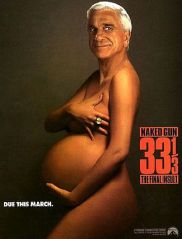It was the kind of video you could tell would go viral the moment you watched it. A trio of young girls, bored watching TV shows about princesses, build an elaborate Rube Goldberg machine while rapping over the Beastie Boys’ ’80s single “Girls.” The original Beasties track is a jokey, juvenile (and blatantly misogynistic) song about finding girls to “do the dishes” and “clean the laundry.” Instead, the girls in the new version want “build a spaceship” or “code the new app.” The expectedly adorable video, an ad for startup toy company GoldieBlox, has gained more than 8 million views on YouTube in a week.
But this typical Internet feel-good story took a surprising turn thanks to a phone call last week between representatives for the Beastie Boys, who did not authorize the video, and GoldieBlox. The exchange—a representative for the rap group says it was an “inquiry,” while GoldieBlox claims the call was threatening—led the toy company to file a preemptive lawsuit against the Beastie Boys, producer Rick Rubin and the group’s record label, Universal Music. GoldieBlox is claiming that their use of “Girls” does not constitute copyright infringement because of the fair use doctrine, which allows people to use copyrighted materials in new works for transformative purposes.
[youtube=http://www.youtube.com/watch?v=UFpe3Up9T_g]
Whether the Beastie Boys would have actually sued GoldieBlox is unclear, but the case will now be reviewed by the U.S. District Court in Northern California. The outcome could have big implications for the use of parodies in commercials, particularly in an age when remixing and redistributing media is easier than ever before.
(MORE: Why Apple Hasn’t Managed to Kill Pandora Yet)
The fair use doctrine has long been wielded to protect musical expression, perhaps most famously in the 1994 Supreme Court decision ruling that 2 Live Crew’s bawdy take on “Pretty Woman” was a legal parody of Roy Orbison’s original. But using a song in an explicitly commercial context, like the GoldieBlox ad, limits its protection from copyright infringement lawsuits. “Whether or not a work is used for a commercial purpose has been part of the fair use analysis for a very long time,” says Andy Sellars, a staff attorney for the Digital Media Law Project housed at Harvard University. “The use of media in advertising has often been a tough place for people to make fair use claims.”
GoldieBlox’s argument rests on the idea that their video is both a parody, generally protected by the fair use doctrine, and an important public policy statement on the educational opportunities for women. “GoldieBlox created its parody video specifically to comment on the Beastie Boys song, and to further the company’s goal to break down gender stereotypes and to encourage young girls to engage in activities that challenge their intellect, particularly in the fields of science, technology, engineering and math,” the company wrote in its claim.
However, the Beastie Boys have taken a strong stance against the use of their music in advertisements. Member Adam Yauch (aka MCA), who died of cancer in 2012, explicitly stated in his will that his music should not be used for advertising purposes, according to Rolling Stone. Shortly after MCA’s death, the group sued Monster Energy Drink for the unauthorized use of their songs in a promotional video on the company’s website. In an open letter published Monday, surviving members Mike D and Ad-Rock reemphasized their anti-commercial sentiment, writing directly to GoldieBlox, “As creative as it is, make no mistake, your video is an advertisement that is designed to sell a product, and long ago, we made a conscious decision not to permit our music and/or name to be used in product ads.”
There are examples both sides can highlight to prove their legal point. MGM won an injunction against Honda in 1995 to stop a series of car ads that imitated famous scenes and characters from the James Bond films a little too directly. In 2004 Eminem sued Apple and MTV for a an iTunes commercial that featured 10-year-old boy singing his hit song “Lose Yourself.” The parties eventually settled out of court.

Paramount Pictures was sued over this poster promoting Naked Gun 33 1/3, but the courts ruled that it did not violate copyright law.
But there are others cases where parody ads have been ruled legal. In 1991 Paramount Pictures created a promotional poster for a Naked Gun sequel featuring Leslie Nielsen in the same pose as a very pregnant Demi Moore on the cover of Vanity Fair. Annie Leibovitz, the creator of the Vanity Fair photo, sued Paramount, but the courts ruled that the poster was clearly a parody and therefore legal under fair use.
(MORE: Emojis, Exploding Coupons Could Be in Snapchat’s Future)
These types of legal confrontations could become more common as advertising broadens outside the world of traditional ad agencies. “The way it’s normally done on Madison Avenue is to get permission. There’s what they call a clearance culture,” Sellars says. “The idea of fair use is that you don’t need permission.”
The GoldieBlox video was conceptualized by the company’s executives and produced by The Academy, a production studio that mostly develops short films. A traditional ad agency might have raised red flags on using the Beastie Boys song, but none were involved.
There’s an obvious irony to this case. The Beastie Boys are constantly in legal battles over their wide and varied sampling of older music. Copyright infringement suits against 1989’s Paul’s Boutique are still kicking around in the courts. But the conflict with GoldieBlox shows that today, any piece of media is ripe to be reinterpreted (or perhaps exploited) by anybody at any time.
“It’s a different type of advertising than we’re used to seeing.,” Sellars says. “We’re finding people expressing themselves in new and different ways in ways that would have made old gatekeepers nervous.”

